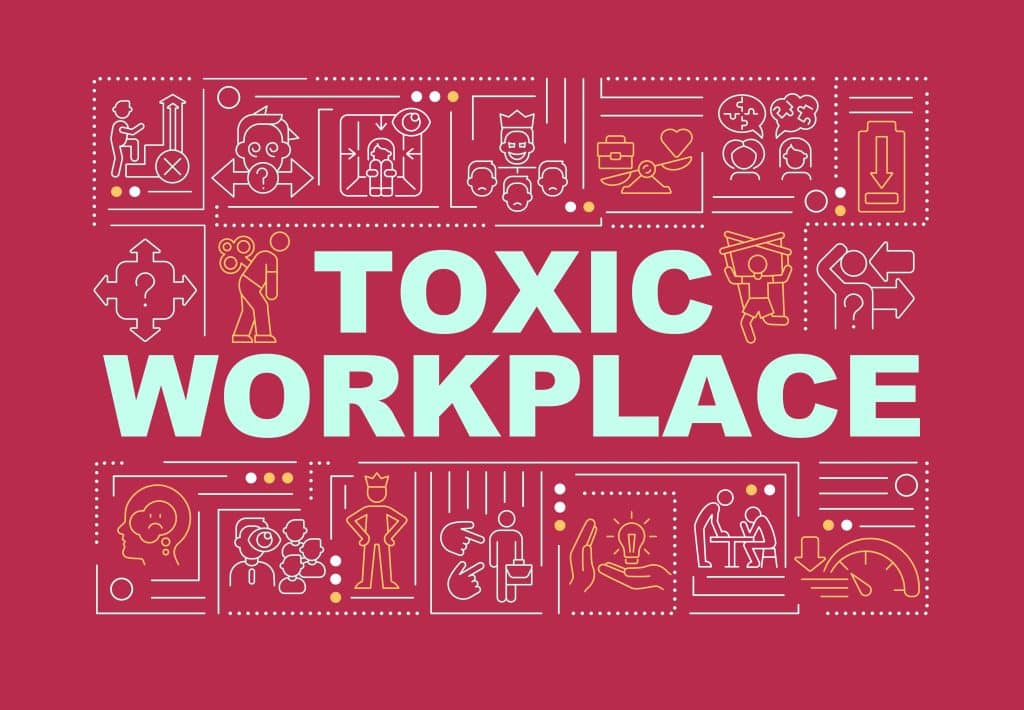Marketing Tips, News
How High Staff Turnover Impact SME Growth

Why High Staff Turnover Is a Silent Growth Killer for SMEs
Staff turnover is often underestimated in its impact, especially in small and medium-sized enterprises (SMEs). While some level of employee movement is expected in any business, persistent and high levels of attrition can quickly become a significant barrier to growth. Recruitment costs and workflow disruptions are not the only effects; they also affect culture, strategy execution, innovation, and ultimately, business performance.
Unlike larger corporations with extensive HR departments and robust training systems, SMEs typically operate with lean teams. Each member holds multiple responsibilities, meaning the departure of even one person can destabilise operations. Turnover not only slows progress but can also damage the organisation’s internal trust and external credibility. When left unaddressed, it becomes a systemic issue that stifles sustainable growth and prevents the business from reaching its full potential.
Opportunity Marketing helps SMEs tackle the root causes of high staff turnover by aligning strategic marketing with internal business clarity, leadership development, and cultural structure. Through our strategy-first consultancy services, including the With the Fast Track Marketing Plan and Marketing Mentoring, we guide business owners in creating a purposeful direction that improves both retention and growth. Our impartial, structured approach empowers SMEs to build a stable, motivated workforce while delivering measurable commercial results. Contact Us: 0333 320 4108 or info@opportunitymarketing.co.uk.
The True Cost of Staff Turnover in SMEs
Direct Costs of Replacement
When an employee leaves, there are immediate and unavoidable financial costs involved in replacing them. These include recruitment expenses, whether managed internally or outsourced to agencies, job advertisements, candidate screening, and interviewing processes. On average, replacing a mid-level employee in the UK can cost upwards of £12,000 once hiring, onboarding, and training time are factored in.
For SMEs, this expense is magnified due to limited resources and the high dependency on individual staff. Business owners or managers often divert their focus from revenue-generating activities due to the time and attention required to fill the role. This expense contributes to reduced overall productivity, delays in project delivery, and missed commercial opportunities.
Indirect and Hidden Costs
Beyond financial outlay, turnover impacts the entire business ecosystem. There are knowledge gaps, disruptions to team dynamics, and increased pressure on remaining staff, who must absorb the departed colleague’s workload. This process creates a snowball effect, raising stress levels and potentially triggering further resignations.
High turnover can affect client relationships. Customers place a high value on consistency and familiarity, particularly in service-led industries where they establish trust with specific individuals. Regular staff changes create a sense of instability, potentially damaging reputation and reducing client loyalty.

Impact on Growth Initiatives
Turnover disrupts continuity, derails momentum, and leads to short-termism in decision-making. When management is constantly backfilling roles or addressing internal morale issues, strategic growth initiatives are often postponed or shelved entirely. Such turnover not only limits capacity to scale but can also deter investment, partnership, or acquisition opportunities due to perceived instability in the workforce.
Root Causes of High Staff Turnover in SMEs
Poor Management and Weak Leadership
Management styles significantly influence staff retention. Many SMEs promote internally without providing the necessary leadership training, resulting in managers who may be technically skilled but lack emotional intelligence or people-management capability. Employees who feel undervalued, micromanaged, or unsupported are far more likely to leave even if they like the business or their role.
Ineffective leaders often struggle with setting clear expectations, offering constructive feedback, or handling conflict appropriately. Frustration builds among teams when these issues remain unresolved, leading to disengagement and eventual departure. Over time, this lack of leadership maturity erodes trust and damages the organization’s culture.
Lack of Strategic Clarity
A clear strategy gives people a sense of direction and purpose. Without it, employees become disoriented, questioning how their work contributes to the broader business goals. SMEs that operate reactively, chasing short-term wins without long-term planning, often create confusion and conflict within teams.
This lack of clarity leads to shifting priorities, unrealistic expectations, and frequent changes in direction. Staff experience decision fatigue and burnout, particularly when they are forced to pivot without rationale or adequate communication. Over time, the absence of a strategic roadmap contributes to instability, pushing employees to seek more structured and purposeful roles elsewhere.
Toxic Workplace Culture
Environments that ignore or even reward bad behaviour foster a toxic culture. This can manifest as bullying, exclusion, gossip, favouritism, or a general lack of respect between colleagues. In SMEs, the dynamics of bullying, exclusion, gossip, favouritism, and a general lack of respect are even more pronounced because personal relationships play a larger role in smaller teams.
Employees who feel unsafe or unsupported emotionally are less productive, more likely to take sick leave, and far more inclined to leave. Allowing toxicity to persist sends a clear message that the organisation prioritises results over people. The reputational damage also deters high-calibre candidates from joining the business, worsening recruitment challenges.

Tribal Culture and Internal Cliques
Tribalism within a business creates silos, damaging collaboration and inclusivity. In SMEs, this often happens when teams or individuals are allowed to dominate decision-making or culture without being held accountable. New staff can struggle to integrate if they’re not part of the dominant group, leading to feelings of isolation.
This results in reduced morale, poor knowledge sharing, and internal conflicts. Over time, it limits innovation and erodes organisational agility. Businesses that allow tribal culture to grow often suffer from uneven performance across departments and a high turnover rate among those who feel marginalised or disengaged.
Operational Drivers Contributing to Turnover
Poor Marketing Planning and Performance
Marketing is not just about attracting customers; it also influences internal confidence and morale. When a business fails to communicate its brand vision or repeatedly misses commercial targets due to poor marketing execution, it creates uncertainty. Employees begin to question the company’s viability and their job security.
Where budgets are tight and pressure is high, marketing activities without strategic guidance can lead to wasted resources and disappointing results in SMEs. This creates frustration across departments, especially in sales, customer service, and finance. Over time, poor marketing planning can lead to staff feeling disillusioned and demotivated.
Health and Safety Neglect
A safe workplace is a legal and moral obligation. Yet many SMEs fall short due to a lack of formal policies or a reactive approach to risk management. This is particularly critical in industries such as manufacturing, construction, logistics, or hospitality.
Staff members feel undervalued and vulnerable when they encounter unsafe conditions, such as physical hazards or inadequate mental health protocols. Chronic exposure to high-pressure environments, without appropriate support mechanisms, lead to burnout and absenteeism. Long-term neglect results in higher compensation claims and legal risks, as well as an exodus of staff who prioritise their health and well-being.
Mental Health and Workplace Stress
Mental well-being is increasingly recognised as a key driver of retention. SMEs often face challenges such as under-resourcing, fluctuating workloads, and financial pressures, all of which contribute to stress. Without a structured well-being strategy, employees suffer in silence, becoming disengaged or withdrawn.
Overworked staff are less creative, less productive, and more likely to make mistakes. As stress accumulates, so does resentment, especially if employees perceive a lack of empathy from leadership. Once mental exhaustion takes hold, retention becomes a secondary concern for those affected.

The Long-Term Impact on Business Growth
Customer Retention and Service Quality
Employee turnover has a direct impact on customer satisfaction. When frontline staff frequently change, relationships with clients become transactional instead of personal. This phenomenon reduces loyalty and increases the likelihood that customers will seek more stable service providers.
High turnover also disrupts service delivery, leads to delays, and escalates error rates, especially when new staff lacks proper training or briefing. As reputation suffers, so does referral business, which is often a core source of growth for SMEs.
Loss of Institutional Knowledge
When experienced employees leave, they take more than just skills; they take insight. Institutional knowledge includes the nuance of client preferences, supplier relationships, internal shortcuts, and context for past decisions. This type of expertise is rarely documented and often irreplaceable.
Losing this knowledge disrupts continuity and affects everything from project quality to regulatory compliance. New hires require time to rebuild understanding, meaning operational efficiency suffers. A pattern of high turnover eventually leads to a business that forgets how it works best.
Negative Employer Reputation
Perceptions matter, especially in recruitment. With the rise of employee review platforms and social media, internal issues quickly become public knowledge. SMEs with a pattern of poor reviews or anecdotal warnings struggle to attract experienced candidates.
This creates a cycle where only less experienced or desperate applicants apply, lowering the overall quality of hires and contributing to more turnover. Negative perception extends to customers and partners, who may question the stability and integrity of the business.
Breaking the Cycle: Strategic Solutions for SMEs
To address the underlying causes of turnover, SMEs need a holistic and strategic approach. Below are proven solutions that promote employee retention and strengthen business resilience.
Improve Leadership and Management Capability
Leadership development is essential to reducing staff churn. SMEs must invest in building management capability, including soft skills like empathy, coaching, and communication. This begins with evaluating current leaders and identifying gaps in capability or mindset.
- Offer structured leadership development programs or mentoring.
- Set clear expectations for people management as part of managerial performance metrics.
- Build a culture of accountability that starts with leadership behaviour.
Opportunity Marketing’s mentoring services for SMEs help support leadership teams with strategic clarity, allowing managers to lead more confidently and with greater purpose.

Build a Structured Marketing Strategy
A clear and compelling marketing strategy gives employees confidence in the business direction. It allows for better targeting, stronger conversion rates, and more predictable revenue streams. With this stability, staff feel secure and motivated to contribute.
- Define customer propositions, brand messaging, and market positioning.
- Build a marketing activity plan aligned to business goals and team resources.
- Use tools like the Fast Track Marketing Plan to develop a structured, three-year roadmap.
Strategic marketing removes guesswork and short-term scrambling, freeing teams to focus on execution, collaboration, and performance.
Create a Healthy, Inclusive Culture
Culture is what happens when no one is looking. Building a healthy one requires consistent leadership, proactive feedback, and clear values.
- Promote transparency and communication at all levels of the organisation.
- Encourage collaborative behaviours and discourage internal politics or exclusion.
- Conduct regular culture audits or anonymous surveys to gauge sentiment.
An inclusive workplace creates psychological safety, encouraging innovation and long-term commitment from staff.
Invest in Career Development and Progression
People stay where they grow. SMEs often believe they cannot offer progression due to flat structures, but development doesn’t have to mean promotion.
- Introduce lateral development opportunities such as secondments, new projects, or mentoring roles.
- Provide formal and informal training opportunities aligned to both business and personal growth goals.
- Hold quarterly reviews to discuss aspirations and development planning.
When employees see a future in your business, they are far more likely to stay committed.
Prioritise Mental Health and Workplace Wellbeing
A workplace that supports well-being retains staff and attracts top talent. It requires more than box-ticking or occasional wellbeing weeks.
- Develop a well-being policy that includes flexible work, mental health resources, and EAPs.
- Train managers to recognise signs of stress or burnout and intervene early.
- Promote work-life balance by setting boundaries on email usage, overtime, and holiday entitlements.
When staff feel supported as individuals, not just resources, loyalty and productivity increase significantly.
What SMEs Should Avoid
Leadership mistakes often compound high turnover. Avoiding these pitfalls is just as important as taking proactive steps:
Avoid:
- Avoid blaming staff for performance issues that stem from poor leadership or unclear strategy. This leads to disengagement and defensiveness.
- Micromanaging due to a lack of trust. It stifles creativity and autonomy.
- Promoting based on technical skill rather than leadership potential. This often results in poor team outcomes and credibility issues.
- Ignoring feedback or delaying action on concerns. Staff quickly disengage when they feel unheard.
- Over-promising in job interviews. When reality doesn’t match expectation, disillusionment is inevitable.
Role of Strategic Marketing in Staff Retention
People often perceive strategic marketing as an outward-facing function that focuses on attracting customers, building brand visibility, and increasing sales. While these outcomes are certainly vital, what is frequently overlooked is the significant internal influence a strong marketing strategy has on staff morale, alignment, and retention. When a business presents itself with clarity, consistency, and confidence to the outside world, those same qualities begin to resonate internally.
Employees feel proud to work for a brand that knows who it serves, how it differentiates, and where it’s heading.

Clarity in marketing messaging directly contributes to clarity in purpose. When a business can articulate its value proposition with conviction, it becomes easier for staff to understand how their work contributes to the bigger picture. Team members aren’t just ‘doing tasks’; they’re advancing a mission. This sense of purpose fosters greater engagement, alignment, and long-term commitment. It also enhances internal communication, reduces confusion, and gives staff something to stand behind when representing the business externally.
At Opportunity Marketing, we see time and again how our strategy-first model delivers measurable internal benefits as well as external results. A well-structured marketing plan, like the Fast Track Marketing Plan, offers SMEs more than just a marketing activity road map. It anchors the business in strategic thinking, sharpens leadership focus, and communicates a unified direction across all departments.
This strategic cohesion improves internal confidence, especially during periods of growth or change. It also equips managers with tools to align teams more effectively, minimising the chaos and inconsistency that so often drive employees away.
A structured marketing strategy also supports consistency in culture. When your external brand identity reflects your internal values and behaviours, it reinforces a sense of authenticity that’s yours. The feeling of authenticity builds credibility and psychological safety, two of the most important components in retention.
Ultimately, the businesses that use marketing strategy to clarify their direction and communicate it confidently are the ones most likely to retain talent, because people are more inclined to stay when they feel part of a meaningful and coherent story.
Retention as a Strategic Growth Lever
Staff turnover is more than a people problem; it is a business growth problem. SMEs that experience high attrition struggle to scale effectively, because growth depends not just on acquiring new customers but on maintaining internal capacity, continuity, and competence. Retaining skilled, engaged staff is what allows businesses to build momentum, protect intellectual capital, and consistently deliver quality.
Rebuilding teams constantly results in inconsistent progress, which undermines customer confidence and operational stability.
Retention, therefore, must be viewed as a strategic lever for long-term success. It is not simply a function of HR but a cross-functional imperative that includes leadership development, culture management, marketing clarity, operational planning, and employee well-being. Every resignation comes with a cost financially, culturally, and commercially. Businesses that acknowledge and address the root causes proactively are better positioned to grow sustainably and competitively.
This is why SMEs must approach their internal people strategy with the same rigour and foresight that they apply to external marketing. Having a disengaged or constantly changing team does not suffice to attract customers. We build strong businesses from the inside out. Aligning management, culture, marketing, and strategic direction leads to an organic improvement in retention. People want to stay where they feel safe, valued, and able to contribute meaningfully.
Opportunity Marketing helps SMEs achieve this alignment. Through our strategic marketing frameworks, leadership mentoring, and structured planning services, we empower business owners to create environments that attract, engage, and retain high-quality people. Your business grows steadily, confidently, and predictably when your people remain.
Retention is a strategic advantage.
Staff turnover is not just a human resources issue; it is a strategic risk. For SMEs, losing talent means losing time, knowledge, and potential. High attrition levels signal deeper organisational issues, from poor leadership and a toxic culture to marketing misdirection and and a lack of vision.
Try working towards building strong leadership, prioritising employee well-being, and grounding all decisions in a clear strategic framework; SMEs can significantly reduce turnover. Retention isn’t just about keeping people; it’s about giving them a reason to stay, contribute, and grow.
Start by strengthening your marketing strategy, because when your direction is clear, your people will follow it.

Work With Opportunity Marketing
At Opportunity Marketing, we help SMEs unlock consistent growth by addressing the root causes that hinder progress, including high staff turnover. Through strategy-first planning, leadership mentoring, and marketing clarity, we support business owners in creating environments where teams thrive, customers stay loyal, and growth becomes predictable. If your SME is losing good people and struggling to scale, it’s time to revisit the foundations, starting with your marketing strategy.
📩 Request a Free Consultation
Let’s talk about how we can help you stop reacting to agency ideas and start driving your marketing with purpose. Complete our quick inquiry form or give us a call; we’ll walk you through what’s possible and how to get started.
📍 Visit: opportunitymarketing.co.uk
📞 Call: 0333 320 4108
📧 Email: info@opportunitymarketing.co.uk


Ian Kirk
Founder at Opportunity Marketing
Ian is the founder of Opportunity Marketing marketing, with over 18 years of experience in successfully setting up marketing departments, creating marketing strategies and implementing these strategies across a wide number of SME companies in both the B2B and B2C sectors through a variety of channels.






